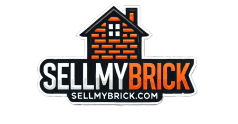Housing Affordability: Key Issue in Canada’s 2025 Election
In the upcoming Canadian federal election, housing affordability remains a critical issue. While trade conflicts and economic stability have dominated the campaign, housing continues to be a top priority for voters.
A recent Royal LePage® survey found that 55% of Canadians consider housing policies important when choosing a candidate. Among younger Canadians, 72% of Generation Z and 59% of Millennials are more likely to vote based on housing positions.
Phil Soper, president and CEO of Royal LePage, emphasized that housing affordability is a significant topic this election cycle. While some solutions focus on easing development restrictions, Canadians, especially younger voters, are seeking lasting solutions to make homeownership achievable.

Housing Ranks Third in Election Priorities
Housing is the third most important issue for Canadians after the economy and healthcare. While international trade and economic stability dominate the conversation, housing remains central to voters’ concerns.
A survey revealed that 86% of respondents consider the economy and cost of living important. Other top issues include healthcare, housing, government spending, and taxes. In Vancouver, housing ranks second, above healthcare.
Soper also noted the importance of strong leadership to address the housing crisis. He urged that bold, coordinated actions from all levels of government are necessary to build more homes quickly and at scale.
Party Solutions to the Housing Crisis
With housing at the forefront, political parties have proposed various solutions. The Liberal Party aims to double residential construction over the next decade by offering low-cost financing to developers and removing the GST for first-time homebuyers.
The Conservative Party plans to build 2.3 million homes in five years. Their strategy includes repurposing federal buildings for residential use and cutting development taxes.
The NDP seeks to double Canada’s homebuilding rate, offering low-interest, government-backed mortgages for first-time buyers. They also propose banning corporate purchases of affordable rental housing.
The Bloc Québécois supports transferring federal housing funds to Quebec and addressing homelessness. The Green Party focuses on preventing corporate exploitation and launching a large public housing construction program.

